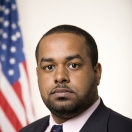
Faith and community leaders are on the frontlines of the most pressing challenges facing our families and our nation. They hear our stories, they know where the needs are in their communities, and they are especially in touch with those who are isolated and suffering most.
That’s why engaging priests, pastors, rabbis and other religious and community leaders across the country on issues that impact our families is one of President Obama’s top priorities. Among the first actions President Obama took after his inauguration was to establish the White House Office of Faith-based and Neighborhood Partnerships and a new Advisory Council for this Office. And recently, President Obama hosted a conference call with thousands of religious and community leaders to share important information about new health care benefits that will impact those in need.
There could hardly be a more appropriate audience. When congregants falls ill, faith communities come together to support their brothers and sisters in need. And when families struggle, they often turn to religious leaders for the spiritual and practical support to move forward. This is why faith leaders requested information about a new health care law that includes, for example, provisions that make it illegal for insurance companies to deny care to sick children, and allows young people to remain on their parent’s health insurance until they turn 26.
Unfortunately, not everyone agrees that government should share this sort of information with faith and community leaders. Recently, former Bush Administration officials have taken to the airwaves to criticize this effort to reach out and engage communities of faith.
There’s no doubt that President Obama has taken a new approach to partnering with the faith community. Many have observed that the previous Administration’s Faith-Based Initiative was focused squarely on dollars and cents – promising financial rewards for certain faith-based organizations. Unfortunately, critics held that many of those funds failed to materialize and opportunities to engage in non-financial ways were missed.
President Obama has a different vision for our office, one where we partner with a range of organizations not only financially but also civically to help better understand the challenges we face and work together to solve them. That includes reaching out to religious leaders about the health of our communities, as well as other important tasks such as:
• Combating fatherlessness in our country through the President’s Fatherhood and Mentoring Initiative;
• Finding common ground on difficult cultural issues through efforts like the Pregnancy Assistance Fund, promoting access to adoption and preventing teen and unplanned pregnancies;
• Helping faith-based and community organizations respond to disasters;
• Helping to coordinate the non-profit community’s response to the earthquake in Haiti;
• Empowering communities to respond to flu and other public health challenges;
• Alleviating hunger in high-risk communities;
• Promoting interfaith cooperation through service on college campuses; and
• Hearing directly from communities of faith and secular organizations through a new faith and neighborhood Advisory Council which produced a landmark set of recommendations, many of which are being implemented.
President Obama believes that government should treat faith and community organizations as equal partners, soliciting advice, sharing information, protecting church/state separation, and ensuring that they know about opportunities to work with the federal government to serve their communities. I’m proud of our efforts to communicate with the faith community and the American people, and look forward to continuing to strengthen our partnerships with religious and community leaders across the country.
Joshua DuBois serves as Special Assistant to the President and Executive Director of The White House Office of Faith-based and Neighborhood Partnerships.


